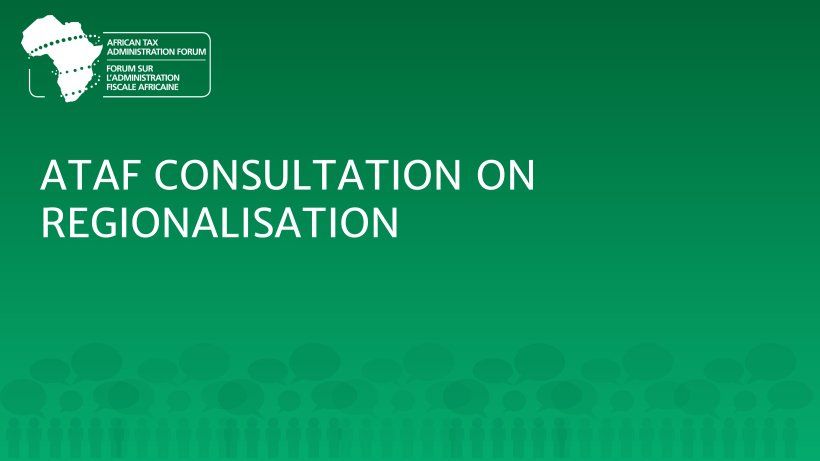ATAF holds consultation with Members on regionalisation. What now?
Pretoria, 09 July 2021 – The African Tax Administration Forum (ATAF) held a consultative meeting with its members to discuss the establishment of regional capacity building hubs.
As part of its new Strategic Plan 2021 – 2025, ATAF has set out to establish a strong regional presence to make its programmes more accessible to members and more sensitive to the socio- economic and policy realities within which they operate.
Doris Akol, Tax Administration Advisor on Corporate Governance, said, “Regionalisation is one of the pathways that ATAF envisages for enhancing its capabilities and its outreach capacities to Members. It's part of the strategy for the next five years, where ATAF has committed to becoming a decentralised organisation.”
The meeting which was attended by over 100 officials from ATAF’s Member countries, including ATAF Country correspondents and Heads of training departments. The meeting sought to obtain inputs from Members on various considerations related to the project. These included the relevance of such hubs, their mandate, modus operandi, structure, geographical location and relationship with the ATAF Secretariat among others.
At the conclusion of the meeting, there was clear consensus over the need and relevance of this project as most participants agreed that increased geographic, cultural, administrative and economic proximity will enable ATAF to build stronger relationships, develop and sustain partnerships and collaborations. This in turn, will help develop tailored programmes based on regional needs and help increase ATAF’s footprint across the continent.
The next step is to hold similar consultations with other relevant officials to enrich the implementation plan even more, before the launch of the first pilot phase.
Click here to view the full
French and
Portuguese article.











